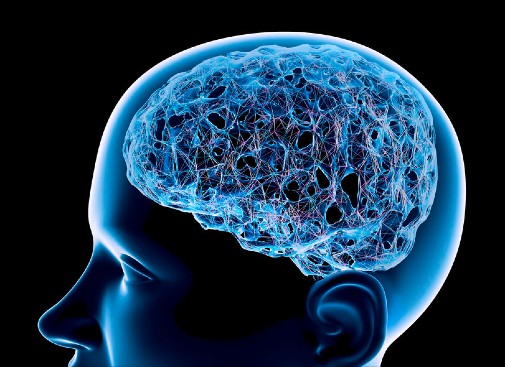 |
| By Matt Davies, Newsday |
Sunday, April 25, 2021
URI oceanographers reveal links between migrating Gulf Stream and warming ocean waters
At stake: sea level rise, fishing
The Northwest Atlantic Shelf is one of the fastest-changing regions in the global ocean, and is currently experiencing marine heat waves, altered fisheries and a surge in sea level rise along the North American east coast.
A new paper, “Changes in the Gulf Stream
preceded rapid warming of the Northwest Atlantic Shelf,” published in Communications
Earth & Environment by recent URI Graduate School
of Oceanography graduate Afonso Gonçalves Neto reveals the
causes, potential predictability and historical context for these types of
rapid changes.
Do you really need to drink 8 glasses of water a day?
An exercise scientist explains why your kidneys say 'no'
Tamara Hew-Butler, Wayne State University
 |
| Exercising can increase your need to drink water, but there’s no need to overdo it. The Great Brigade/Getty Images |
Not to burst anyone’s water bottle, but healthy people can actually die from drinking too much water.
I am an exercise physiologist, and my research focuses on overhydration and how drinking too much water affects the body.
Since water – and sodium – balance is essential to life, it is extremely rare for people to die from drinking too much – or too little – fluid.
In most cases, your body’s finely tuned molecular processes are unconsciously taking care of you.
The post office is doing WHAT?
Document
Reveals USPS Is Monitoring Social Media Posts
By Jake Johnson, staff writer
for Common
Dreams
 |
| Trump-appointed hold-over Postmaster Louis DeJoy is doing all he can to undermine public confidence in the Postal Service. |
The sensitive bulletin concerns the
U.S. Postal Inspection Service's (USPIS) recent surveillance of Facebook,
Parler, and Telegram posts related to the March 20 World Wide Rally for Freedom
and Democracy, anti-coronavirus lockdown and anti-vaccine demonstrations organized
by far-right groups.
"The federal government's
sprawling and clandestine surveillance apparatus manifests in a new
way," tweeted progressive activist Jordan
Uhl. "These breaches of civil liberties largely go unchecked because,
again, it targets right-wingers on Parler, but ultimately threaten everyone in
the long run."
Jana Winter of Yahoo News reported that the USPIS surveillance
effort "involves having analysts trawl through social media sites to look
for what the document describes as 'inflammatory' postings and then sharing
that information across government agencies."
Winter wrote on Twitter that
USPIS would not answer questions about when
the social media monitoring program began.
Saturday, April 24, 2021
Repeal MOPR
Time To Repeal New England’s Anti-Consumer Dirty Energy Rule
By Bruce Ho
Originally published on
the NRDC Expert Blog.
Within the arcane rules that govern New England’s regional power grid, there’s a ticking time bomb that threatens to frustrate the region’s efforts to tackle the climate crisis while raising electricity bills by $3 billion over 10 years.
Known as the Minimum
Offer Price Rule or MOPR (pronounced “mo-per”), this provision has already
locked in hundreds of millions of dollars in excess charges to households and
businesses from Nashua, New Hampshire, to New Haven, Connecticut, by preventing
inefficient, polluting power plants from being replaced by cleaner ones.
Unless changed, this
rule will force the region to pay even more for dirty power it neither wants
nor needs. Repealing or significantly reforming the
costly, outdated Minimum Offer Price Rule is in the best interests of New
England’s consumers, their health, and our climate.
For years, the
organization that operates New England’s grid — ISO New England — has resisted
meaningful MOPR reforms. In 2018, the ISO proposed an updated rule that
reinforced the existing MOPR, prioritizing fossil fuel generators’ profits over consumers.
But there’s hope for
change. The new chairman of the Federal Energy Regulatory Commission, or FERC,
which oversees ISO New England, has made MOPR repeal or reform a top priority. In
response, ISO New England has publicly committed to reform the rule, though
what the grid operator has in mind — and whether this aligns with consumer and
clean energy interests — remains to be seen.
New England states also
are pushing ISO New England and FERC to act. As several groups (Acadia Center,
Conservation Law Foundation, NRDC, and Sierra Club) that are members of
the Sustainable
FERC Project coalition recently commented to state
leaders, continued pressure from the states will be critical to address the
MOPR and build a reliable, clean, and consumer-centric grid.
Coronavirus does not infect the brain but still inflicts damage, study finds
COVID and your brain
Columbia University Irving Medical
Center
SARS-CoV-2, the virus that causes COVID-19, likely does not directly infect the brain but can still inflict significant neurological damage, according to a new study from neuropathologists, neurologists, and neuroradiologists at Columbia University Vagelos College of Physicians and Surgeons.
"There's been considerable
debate about whether this virus infects the brain, but we were unable to find
any signs of virus inside brain cells of more than 40 COVID-19 patients,"
says James E. Goldman, MD, PhD, professor of pathology & cell biology (in
psychiatry), who led the study with Peter D. Canoll, MD, PhD, professor of
pathology & cell biology, and Kiran T. Thakur, MD, the Winifred Mercer
Pitkin Assistant Professor of Neurology.
"At the same time, we observed
many pathological changes in these brains, which could explain why severely ill
patients experience confusion and delirium and other serious neurological
effects -- and why those with mild cases may experience 'brain fog' for weeks
and months."
The study, published in the
journal Brain, is the largest and most detailed COVID-19 brain
autopsy report published to date, suggests that the neurological changes often
seen in these patients may result from inflammation triggered by the virus in
other parts of the body or in the brain's blood vessels.
Eat fish
Another way “good” cholesterol is good: combatting inflammation
American
Heart Association Circulation Journal Report
Testing how well “good” cholesterol particles reduce inflammation may help predict who is at heightened risk to develop cardiovascular disease caused by narrowed arteries, according to research published today in the American Heart Association’s flagship journal Circulation.
Assessing levels of high-density lipoprotein (HDL) cholesterol, known as “good cholesterol,” are already a standard part of formulas used to predict cardiovascular risk.
A new test of the
anti-inflammatory function of HDL seems to provide additional information that
is independent of the quantity of HDL.
If
the results are confirmed in broader populations and a test developed for
clinical use, adding anti-inflammatory capacity to risk scores may improve risk
prediction and help people take steps to protect themselves against heart
disease.
Can we prevent the end of the world?
Unconventional takes on pandemics and nuclear defense could protect humanity from catastrophic failure
American Physical Society
From
engineered pandemics to city-toppling cyber attacks to nuclear annihilation,
life on Earth could radically change, and soon.
Painting by Michel Granger, chosen by Jean Michel Jarre
for cover of his 1976 album Oxygène
"Our
Earth is 45 million centuries old. But this century is the first when one
species -- ours -- can determine the biosphere's fate," said Martin Rees,
the United Kingdom's Astronomer Royal and a founder of the Centre for the Study
of Existential Risks at Cambridge University.*
"Our
globally-linked society is vulnerable to the unintended consequences of
powerful new technologies -- not only nuclear, but (even more) biotech, cyber,
advanced AI, space technology," he added.
Friday, April 23, 2021
Earth Day 2021: Looking back at an unprecedented year for the planet
As we honor Earth, let's remember how much she's been through lately.
Cameron Oglesby for the Environmental Health News
This day last year, the 50th anniversary of Earth Day, was supposed to be complete with international summits, events, and celebrations.
But
most of that was scrapped thanks to the coronavirus pandemic.
Here
we are on the 51st anniversary—still battling COVID-19. Since last year the
world has faced an unprecedented economic crisis, racial reckoning, and
political shift in the fight for climate change.
So
much has happened—and to celebrate this Earth Day we wanted to highlight
notable environmental and climate events, issues, and news that have shaped
society and our planet over the past year.
Study showing how the brain retrieves facts and may help people with memory problems
New study showing how the brain retrieves facts and personal experiences may help people with memory disorders
University of York
A shared set of systems in the brain may play an important role in controlling the retrieval of facts and personal memories utilised in everyday life, new research shows.
Scientists
from the University of York say their findings may have relevance to memory
disorders, including dementia, where problems remembering relevant information
can impact on the daily life of patients.
Researchers
say the findings may also have important implications for the development of a
new generation of artificial intelligence systems, which use long-term memory
in solving computational problems.
The
brain's long-term memory stores are categorised into two: factual memory and
memory of personal experiences.
Together,
these two long-term memory stores help us understand and respond to the world
around us.









